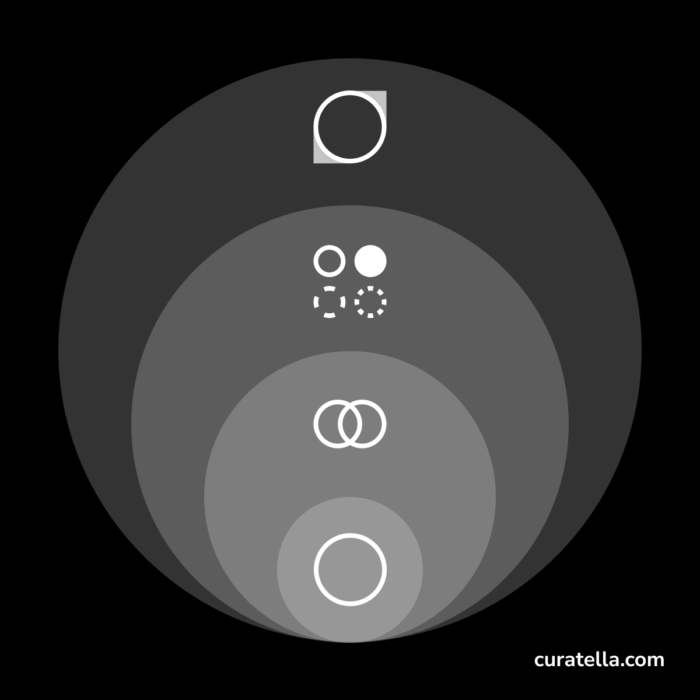This is the second part of an experiment I am making in the Learning Out Loud movement. I am first dumping what I know about some topics, and then I compare it with a researched essay.
It’s not aimed at being a scientific Tractatus but a way to learn in public.
The initial free-flowing article can be found at: Learning Out Loud: Data, Information, Knowledge, and Wisdom.
Following, you can find an essay containing my research about the topics in the title.
What is data?
Most of the time, data and information are considered synonyms. In specific applications, we can make distinctions between the two.
Data is any piece of information without context nor validation, like numbers or words. It’s plain facts, statistics, observations, notes, symbols.
Data can be raw, unprocessed, and unorganized.
Data taken as an individual unit of information without a context might not convey a specific meaning.
Data is not providing immediate utility to people. It needs to be analyzed and processed to extract meaningful value.
In research, data can be of two types: qualitative, when it contains non-numerical data, quantitative when it is given in numbers.
What is information?
Information is data put into context. It’s data acquiring meaning through a purpose or an intent.
Information is data checked, verified, and validated. It may be structured, organized through the processing of data.
Information, seen as a group of organized data, could contain and convey a logical meaning.
Information depends on data.
Information is such because it “inform” people in a context with the final goal of understanding and decision-making.
Data is the raw material out of which people can extract meaningful information.
What’s the difference between data and information?
In synthesis, we can extract meaningful contextual information we can understand, learn, and know about by processing raw data.
What’s the DIKW ladder or pyramid?
In a hypothetical value ladder, we can think of data as the first stage, the raw building block.
By adding value to data through processing and interpretation, we move to the information stage.
Symbolically we could say that information replies to some of the canonical questions: Who? What? When? Where?
What is knowledge?
How is information useful for our purpose? if we connect different information pieces by finding new and valuable relationships, we define the “how,” and we move higher to the stage of knowledge. “How?” is the question that knowledge should help in replying.
What is wisdom?
Why taking a decision rather than others? When knowledge supports us in generating insights and making more effective decisions, it becomes wisdom.
Considerations
If I go back at the improvised take on it, Learning Out Loud: Data, Information, Knowledge, and Wisdom, I am delighted to observe that I did a great job! My free rumbling on the same concepts, without any preparation or research, gave an excellent treatise about data, information, knowledge, and wisdom.
Lucky, gifted, too easy? Not relevant!
Learning Out Loud is immensely useful to test me on my knowledge, and it engages me in a self-challenge which outcome can only be productive: two articles, a few hours of study, plenty of learning.
Strongly recommended to anybody.
Go Learning Out Loud!
Sources
- https://simple.wikipedia.org/wiki/Information
- https://simple.wikipedia.org/wiki/Data
- https://byjus.com/biology/difference-between-data-and-information/
- https://www.ontotext.com/knowledgehub/fundamentals/dikw-pyramid/

Leave a Reply